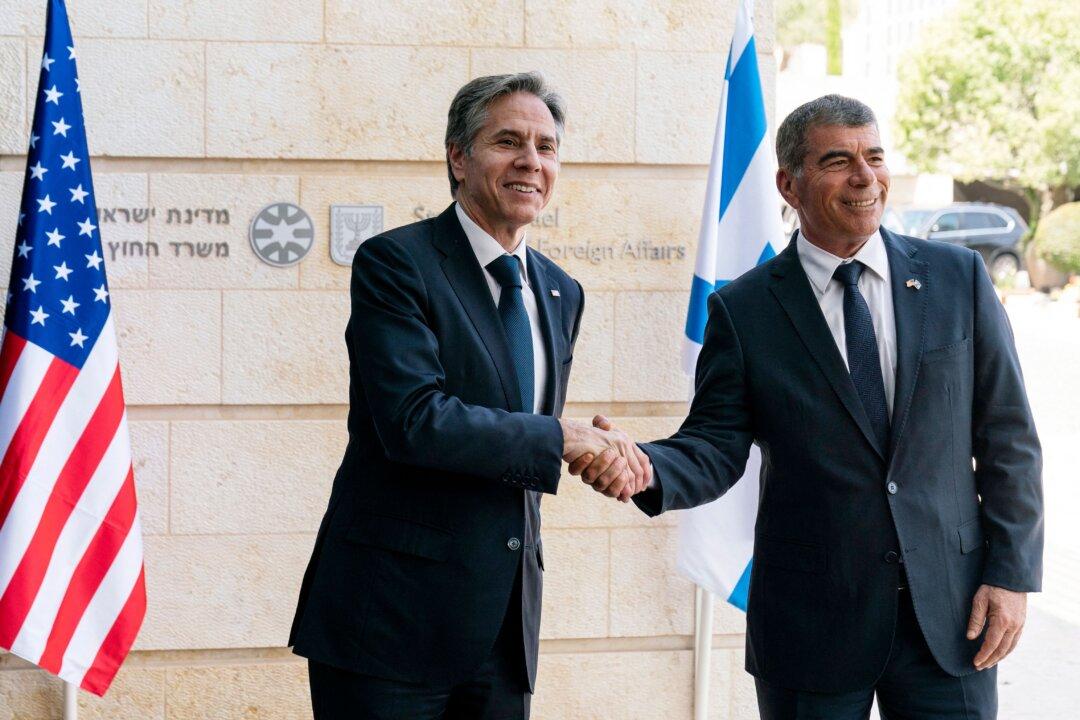JERUSALEM—U.S. Secretary of State Antony Blinken pledged on a Middle East mission on Tuesday that Washington would rally support to rebuild Gaza as part of efforts to bolster a ceasefire between its Hamas terrorist rulers and Israel.
But Blinken made clear that the United States intended to ensure that Hamas, which it regards as a terrorist organization, did not benefit from the humanitarian aid—a potentially difficult task in an enclave over which it has a strong grip.





